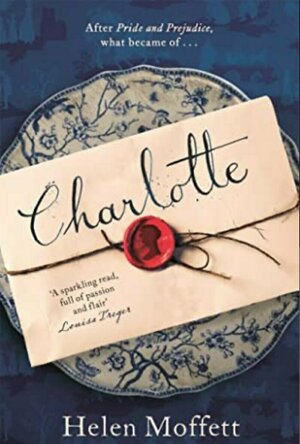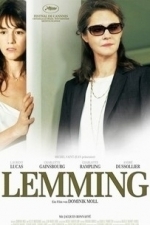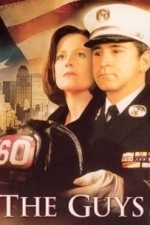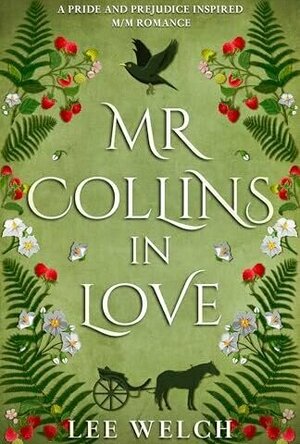Search

Charlotte
Book
For fans of Longbourn and The Other Bennet Sister, this beautifully told story of marriage, duty and...
Pride and Prejudice Jane Austen Regency England
I inhaled Jane Austen as a teenager, and so I was really intrigued when I heard about Charlotte by Helen Moffett. Ok, so this is a #BeatTheBacklog book - it has been sat on my bookshelf for far too long, but I’m so glad I’ve got round to it at last!
Charlotte is a continuation of Charlotte Lucas’ story after we leave her in Pride and Prejudice. She marries Mr Collins, and whilst we may remember him as something of a buffoon, he is quite different here. He still waxes lyrical about Lady de Bourgh - she does pay the bills after all - but he seems to be a good, loving father, and a decent husband.
There’s some really good insight into a lot of these characters from the original book: Lady de Bourgh, Anne de Bourgh (who becomes friends with Charlotte), Mr Collins, Lizzy and Charlotte herself. All were richly described, and it felt good to be back with them.
What really surprised me was Charlottes inner life: the passion, her heartache, how capable she was as the manager of a house and its servants.
And there was quite a surprising turn of events that I’ll say nothing of, but it was quite exciting and lovely.
I’m glad I’ve read this book at last. If you’re an Austen reader/ fan, I think you’d be interested in this. It’s probably a bit more risqué than Austen would have written at the time, but it’s certainly in the same vein.
Recommended.
Charlotte is a continuation of Charlotte Lucas’ story after we leave her in Pride and Prejudice. She marries Mr Collins, and whilst we may remember him as something of a buffoon, he is quite different here. He still waxes lyrical about Lady de Bourgh - she does pay the bills after all - but he seems to be a good, loving father, and a decent husband.
There’s some really good insight into a lot of these characters from the original book: Lady de Bourgh, Anne de Bourgh (who becomes friends with Charlotte), Mr Collins, Lizzy and Charlotte herself. All were richly described, and it felt good to be back with them.
What really surprised me was Charlottes inner life: the passion, her heartache, how capable she was as the manager of a house and its servants.
And there was quite a surprising turn of events that I’ll say nothing of, but it was quite exciting and lovely.
I’m glad I’ve read this book at last. If you’re an Austen reader/ fan, I think you’d be interested in this. It’s probably a bit more risqué than Austen would have written at the time, but it’s certainly in the same vein.
Recommended.
Merissa (13619 KP) rated Mr Collins in Love in Books
Aug 1, 2025
MR COLLINS IN LOVE is a genteel story that begins a few months before the better-known story of Pride and Prejudice. In here, we learn more about Mr Collins and his patroness, Lady Catherine. He is not one of the nicest characters in P&P, so I was a little dubious about reading this.
I'm happy to say I was wrong! Lee Welch has written his character in a way that makes you sympathise with him. He is basically cast adrift in a world he doesn't fully understand. The insinuation that he is on the spectrum comes across loud and clear, and trust me, it does make sense!
Charlotte (Miss Lucas) and his childhood friend, Jem, are both there to help him find his way and give him the life he needs. It's not exactly a romance, so don't expect too much. Instead, it shows a deep and tender love that Mr Collins is not even aware of, even though he fears its loss.
I thoroughly enjoyed this story and look forward to reading more from this author.
** Same worded review will appear elsewhere. **
* A copy of this book was provided to me with no requirements for a review. I voluntarily read this book; the comments here are my honest opinion. *
Merissa
Archaeolibrarian - I Dig Good Books!
Aug 1, 2025
I'm happy to say I was wrong! Lee Welch has written his character in a way that makes you sympathise with him. He is basically cast adrift in a world he doesn't fully understand. The insinuation that he is on the spectrum comes across loud and clear, and trust me, it does make sense!
Charlotte (Miss Lucas) and his childhood friend, Jem, are both there to help him find his way and give him the life he needs. It's not exactly a romance, so don't expect too much. Instead, it shows a deep and tender love that Mr Collins is not even aware of, even though he fears its loss.
I thoroughly enjoyed this story and look forward to reading more from this author.
** Same worded review will appear elsewhere. **
* A copy of this book was provided to me with no requirements for a review. I voluntarily read this book; the comments here are my honest opinion. *
Merissa
Archaeolibrarian - I Dig Good Books!
Aug 1, 2025
Deborah (162 KP) rated The Jane Austen Guide to Happily Ever After in Books
Dec 21, 2018
Oh dear.
I decided to take this book for review as Austen is by far my favourite novelist and I thought this sounded like an interesting concept - what makes the protagonists' matches so good. And there is always the sticky Charlotte Lucas question to ponder over. This isn't really what I got; I felt that this book couldn't decide if it wanted to be a work of literary criticism/analysis or a self help manual. I'm also not entirely sure who the target audience for this book are supposed to be. I got a very strong impression that it wasn't supposed to be me! References to 'we Americans' can be somewhat alienating to the rest of the world. Although the whole book seems to push Austen as a main selling point, it also seems to be aimed at people who don't really know the novels that well - too much of obvious plot details have to be explained and there is an over use of quotation, beyond what was needed to make the point.
The text of the book is only about 250 pages, but there must be at least another 100 pages of endnotes. This is an area of complete overkill, in my opinion. When a single endnote can go on for a couple of pages, by the time you get back to the main text, you've pretty much lost whatever plot there was. Endnotes; just too many and too long and in many cases just too unnecessary.
I was only reading from a proof copy, but there were textual errors - Maria Crawford, anyone?! Hopefully someone familiar with Austen can pick this up.
At the time of writing I see that only one other amazon.co.uk reviewer has come forth to note that they didn't like it much either, while the amazon.com reviews seem to be positive. Maybe this has something to do with targeting, as the writing style was very informal and slangy and with a number of American cultural references that meant very little to me. Such a narrow focus seems a bad error of judgement as far as the rest of the world is concerned. If you want my recommendation, I wouldn't bother with this one.
I decided to take this book for review as Austen is by far my favourite novelist and I thought this sounded like an interesting concept - what makes the protagonists' matches so good. And there is always the sticky Charlotte Lucas question to ponder over. This isn't really what I got; I felt that this book couldn't decide if it wanted to be a work of literary criticism/analysis or a self help manual. I'm also not entirely sure who the target audience for this book are supposed to be. I got a very strong impression that it wasn't supposed to be me! References to 'we Americans' can be somewhat alienating to the rest of the world. Although the whole book seems to push Austen as a main selling point, it also seems to be aimed at people who don't really know the novels that well - too much of obvious plot details have to be explained and there is an over use of quotation, beyond what was needed to make the point.
The text of the book is only about 250 pages, but there must be at least another 100 pages of endnotes. This is an area of complete overkill, in my opinion. When a single endnote can go on for a couple of pages, by the time you get back to the main text, you've pretty much lost whatever plot there was. Endnotes; just too many and too long and in many cases just too unnecessary.
I was only reading from a proof copy, but there were textual errors - Maria Crawford, anyone?! Hopefully someone familiar with Austen can pick this up.
At the time of writing I see that only one other amazon.co.uk reviewer has come forth to note that they didn't like it much either, while the amazon.com reviews seem to be positive. Maybe this has something to do with targeting, as the writing style was very informal and slangy and with a number of American cultural references that meant very little to me. Such a narrow focus seems a bad error of judgement as far as the rest of the world is concerned. If you want my recommendation, I wouldn't bother with this one.





